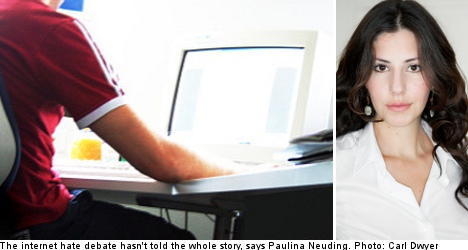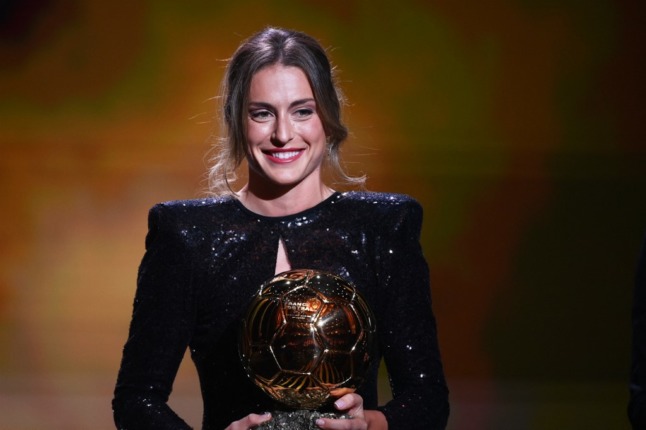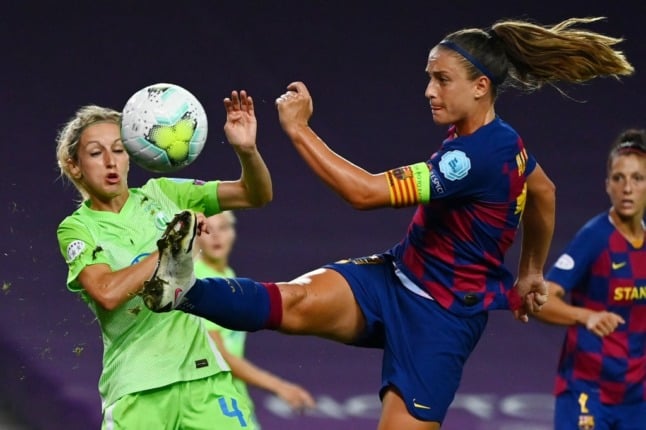There’s no doubt that internet hatred and threats against people who actively take part in public discourse are a growing problem. But when Sveriges Television’s (SVT) investigative news programme Uppdrag granskning examined the topic last week, the perspective was almost entirely restricted to women who were attacked for their leftist views.
Internet hatred, I can tell you, also affects women who are not on the left. We have that in common, but there is a striking difference: Hatred directed at us from the left often finds its way into the established media.
Some examples: Last summer, Sara Skyttedal, vice chairwoman of the Young Christian Democrats, wrote a critical piece about the Pride Festival in which she argued that the festival was fixated on sex and exhibitionism, and in so doing did homosexuals a disservice.
She was subsequently met with aggressive, unwarranted attacks from established journalists and pundits.
The one who probably went the farthest was musician and liberal commentator Alexander Bard who wrote: “WHO ASKED YOU FOR YOUR FASCIST OPINION? We are NOT HERE TO PLEASE YOU! Fuck off, BITCH!”
Nor do these phenomena only affect women.
Last summer, the left-wing cartoonists at Galago Magazine joked that Svenska Dagbladet (SvD) editorial writer Per Gudmundson should be shot. When SvD filed a report with the Justice Chancellor (Justitiekanslern, JK), Gudmundson was mocked for being easily offended.
Simon Fors, a local Left Party politician who sits on the municipal and county councils in Pajala and Norrbotten in northern Sweden, tweeted: “Don’t all people with a brain advocate that Gudmundson be executed?”
Additionally, the site Vita kränkta män (‘Wronged white men’) regularly exposes and mocks men whom its administrator considers not to be sufficiently equality-minded or left-leaning. This site and its author are celebrated in the traditional media for being amusing and progressive.
Conservative columnist and blogger Alice Teodorescu has received death threats for her views on integration and equality – partly because she’s not a feminist. Among other things, people have written that you should “load your rifle” when you see her and accused her of writing that “foments class hatred”.
Another SvD columnist, Johanne Hildebrandt, has been threatened with rape and murder. She has also said that the hateful internet trolls targeting her become more active every time Åsa Linderborg or Jan Guillou accuse her in the Aftonbladet newspaper of being a warmonger.
“The hatred from the left is the worst,” she said when we met up this week.
“They think they are morally superior, that they can spout off anything they want.”
Pundits that would scream bloody murder if Skyttedal, Teodorescu, Hildebrandt, or I were paid less than men, or were subjected to repressive tactics in the boardroom, do not hesitate to write that we are disgusting, idiots, and fascists.
And this isn’t behaviour exclusive to the internet trolls.
When Aftonbladet’s opinion pages devoted two articles to finding similarities between me and Anders Behring Breivik – to underpin their thesis that we were both child killers – I had the same concern as Hildebrandt did: that such a comparison would spawn many more and more aggressive attacks from the haters.
We expected comments like those who agree with the Left Party’s Simon Fors when he wrote that “Moderates deserve nothing but bullets”.
That’s what hatred from the left looks like. The refined, “good” hatred that affects men and women because we are not sufficiently pacifist, queer, feminist, or simply because we aren’t on the left.
Paulina Neuding
Editor-in-Chief, Neo

This article was originally published in Swedish in the (SvD) newspaper Svenska Dagbladet
English translation by The Local.




 Please whitelist us to continue reading.
Please whitelist us to continue reading.
Member comments